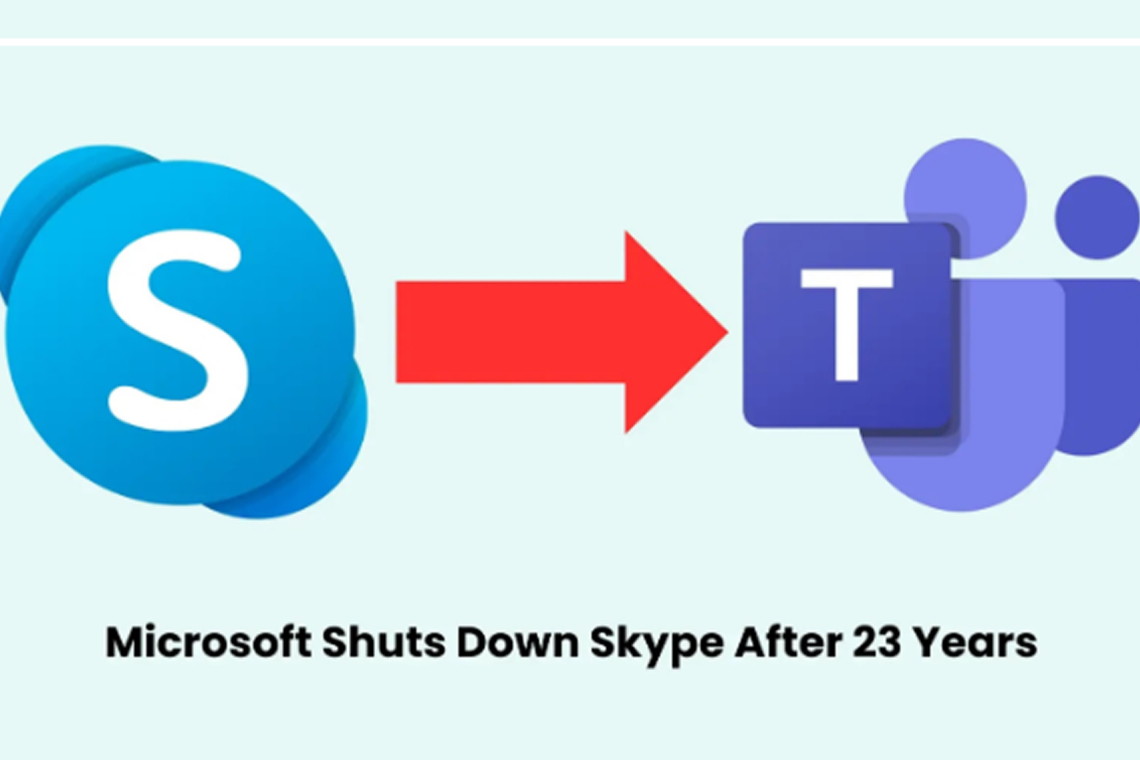Microsoft Retires Skype After Two Decades, Shifts Focus Fully to Teams
After more than 20 years of transforming global communication, Microsoft has officially retired Skype as of May 5, 2025. The tech giant is now encouraging users to transition to Microsoft Teams, signaling the end of one of the internet's most iconic platforms.
A Legacy of Innovation
Launched in 2003, Skype revolutionized voice and video calling over the internet, helping millions connect across borders for free or at low cost. At its peak, it served over 300 million users globally. Microsoft acquired the platform in 2011, but Skype’s influence began to wane with the emergence of platforms like Zoom, WhatsApp, and Google Meet.
The 2016 launch of Microsoft Teams marked a pivotal shift. Designed as a full-fledged collaboration suite, Teams combines chat, video conferencing, file sharing, and productivity tools. It soon became clear that Teams not Skype would be Microsoft’s future in communication.
The Transition to Teams
As part of its strategy to streamline communication tools, Microsoft began phasing out Skype earlier this year. Between February and May 2025, users were notified and given tools to migrate their contacts, chats, and call history to Teams using their existing Skype credentials.
Jeff Teper, President of Microsoft 365 Collaborative Apps and Platforms, stated, “Putting all our focus behind Teams will let us give a simpler message and drive faster innovation.”
What Users Need to Know
- Messages & Contacts: All previous chats and contacts migrate seamlessly into Teams.
- Paid Services: New Skype Credit purchases and subscriptions have been halted. Existing balances can still be used until they expire.
- Data Export: Users not wishing to migrate can export their Skype data using Microsoft’s export tool.
- Skype Web Access: Some paid features, like the Skype Dial Pad, will remain available via the web for a limited time.
While Microsoft has not confirmed how many users are affected, its last reported figure in 2023 was 36 million significantly less than Teams’ 320 million monthly active users worldwide.
Looking Ahead
Skype’s retirement marks the end of an era, but Microsoft is now fully committed to advancing Teams as its flagship communication and collaboration platform. Integrated into Windows 11 and rapidly evolving, Teams aims to combine Skype’s simplicity with next-gen productivity tools for both personal and business users.
Though longtime users may feel nostalgic, the shift reflects a broader move toward unified, cloud-based collaboration where Teams is set to carry Skype’s legacy into the future.
Found this article interesting? Follow us on X(Twitter) ,Threads and FaceBook to read more exclusive content we post.


